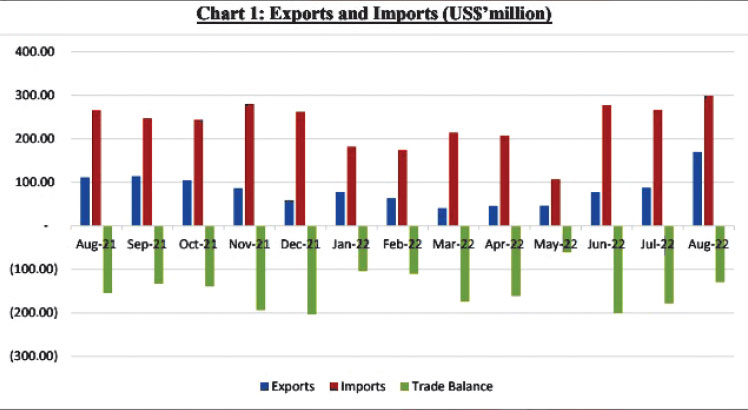Malawi’s trade balance has doubled in a space of three months and economists have cautioned that this could exert inflationary pressures and dampen the kwacha.
The economists said this in reaction to the Reserve Bank of Malawi (RBM) figures, which show that merchandise trade deficit increased to $417.9 million (about K434.2 billion) in the third quarter (Q3) of this year from $252.2 million (about K216.7 billion) recorded in the second quarter of this year.
The deteriorating trade balance, the difference between imports and exports, came about due to a larger growth in imports to $803.2 million (about K832.3 billion) from $385.3 million (K398.1 billion) during the review period.
The figures further show that the rise in exports was driven by tobacco, tea, coffee, pulses and oil seeds while the growth in imports was driven by high costs of fertilisers.
Speaking in an interview yesterday, economic statistician Alick Nyasulu said the widening trade deficit could exert more pressure on the demand for foreign exchange which will continue to rise and possibly weaken the kwacha.
“This will continue to exert inflationary pressures as local prices will continue to rise as importers access expensive foreign exchange rate and pass it on to consumers,” he said.
Nyasulu said unless and until the country gets serious and acts decisively to increase the level of exports, it will continue to get caught in a vicious cicle of increasing trade balances and foreign exchange shortages.
“Import substitution is not even possible because the cost of the stuff we import is manufactured abroad. We need to start moving away from agriculture towards manufacturing. We know the solutions, but sadly we only plan for tomorrow not the future,” he said.
Economist Exley Silumbu said that a high trade balance is usually the norm in the third quarter of the year as the country imports critical agricultural products, but the continued trade balance puts the economy under pressure.
He said: “Already, we are in a tight situation where the country is low on foreign exchange.
“As a net importer, the rising imports against minimal exports put the country in an even tougher situation, which would see continued pressure on the kwacha as the forex buffer continues to decline.”
Meanwhile, due to the under performance of the current account, Malawi’s gross official reserves have lately been under pressure due to the country’s rising demand for imports.
The gross official reserves under the direct control of the RBM have continued to fall and now reported at $357.18 million, an equivalent of 1.43 months of import cover in September 2022 from $521.87 million, an equivalent of 2.09 months of import cover in August 2021, according to RBM Financial Markets Development Report.
Such a development has in turn continued to strain the exchange rate, with the kwacha depreciating against all major currencies in recent times.
Presently, the kwacha is trading at K1 036 to the dollar and is projected to continue depreciating. The kwacha was devalued by 25 percent on May 27 this year.
Malawi’s wide trade deficit has, however, been prevalent.
But having launched the National Export Strategy II (NES II) (2021–2026), the Malawi Government through the Ministry of Trade and Industry expects an outturn of such dominance and consequently an improved trade balance.
Government is upbeat that through implementation of the NES II, which is anchored on industrial development through manufacturing of value-added products for exports, Malawi’s trade balance will improve.
The post Widening trade balance Inflationary—economists appeared first on The Nation Online.
 Moni Malawi
Moni Malawi 

